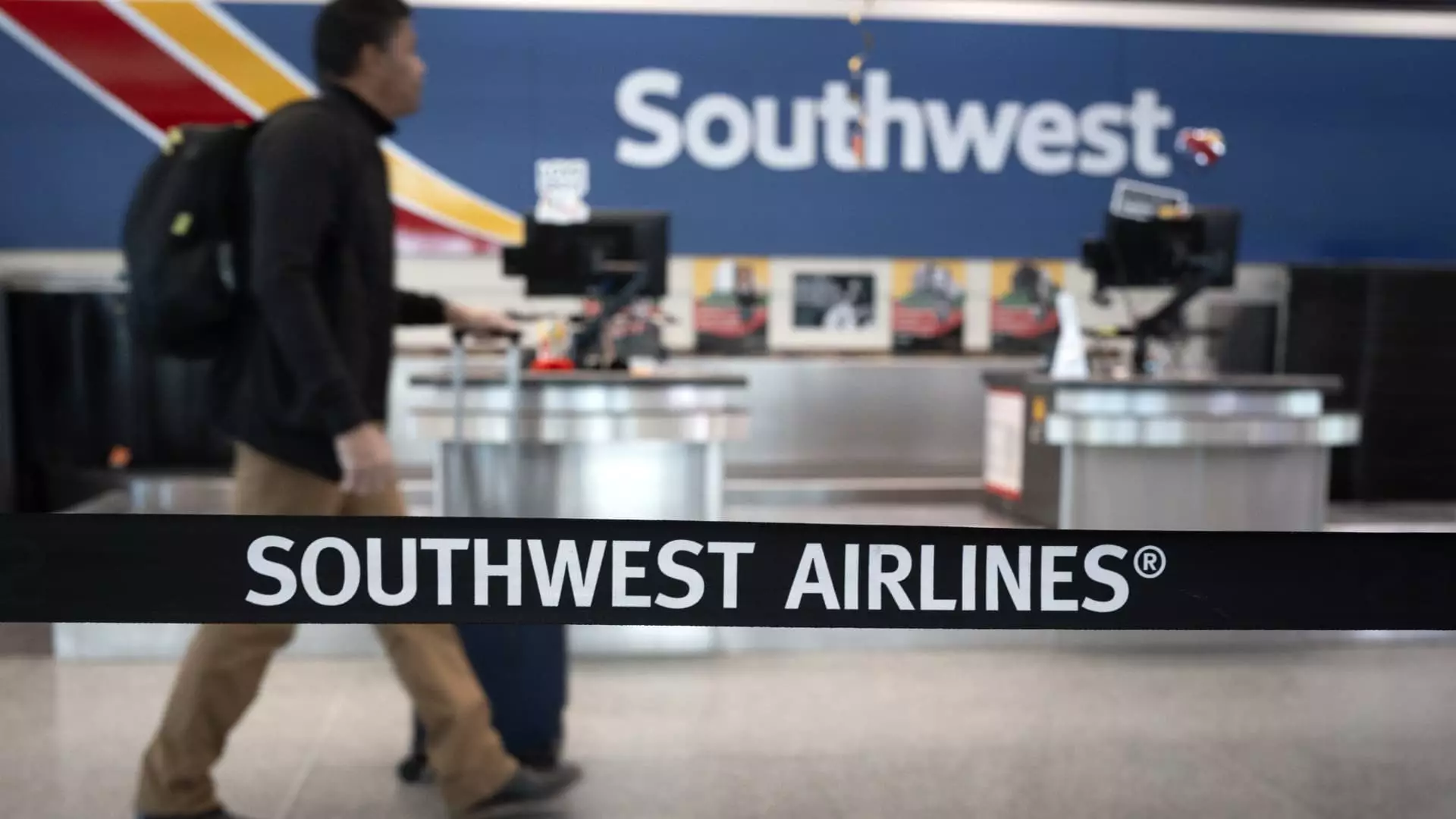In an unprecedented shift that many loyal travelers never saw coming, Southwest Airlines has officially put the nail in the coffin of their longstanding “two bags fly free” policy. Starting this Wednesday, customers will face fees for checked luggage for the first time in over fifty years. What has long been a fundamental perk for millions of customers is now merely a relic of a forgotten era wherein airlines prioritized consumer experience over profit margins. This decision is nothing short of a betrayal for the loyal customer base that championed Southwest for its “Customer First” ethos.
At a time when so much is at stake for the airline industry—balancing profitability with passenger satisfaction—Southwest seems to be abandoning its original values. The alarming trend in customer service appears to align with the financial pressures reported, as U.S. airlines reaped nearly $7.3 billion from baggage fees alone last year. While the airline executives argue that they have to respond to the market’s financial realities, they overlook a fundamental truth: customers valued their unique approach to travel, and by abandoning it, they risk alienating a dedicated fan base for short-term gains.
New Models, New Problems
The recent changes to Southwest’s business model extend beyond baggage fees. The introduction of basic-economy tickets and the elimination of open seating have effectively sent shockwaves through the airline’s culture and its loyal customer base. Just as the presentation of dress codes evolved along with society’s changing values, so too have airlines had to adapt to the modern expectations of consumers. Yet, instead of enhancing the customer experience, Southwest muddles its pioneering spirit by introducing a tiered system that complicates what used to be straightforward.
With basic-economy tickets, customers lose crucial flexibility, becoming subservient to stringent restrictions—no changes, no seat selection, and limited boarding privileges. Southwest has uniquely positioned itself in a world cluttered by confusing airline policies. Now, with guidelines closer to those of its competitors—Delta and United—the airline becomes just another sheep in the herd, rather than the trendsetter it once was. Southwest no longer stands as a bastion of customer-friendly policies and has opted to follow a blueprint that sacrifices the traveler’s experience to maximize profits.
The Impending Storm of Customer Dissatisfaction
The outcry from customers has been deafening. Social media is rife with disappointment and anger, as seasoned travelers express feelings of betrayal and loss over policies that made Southwest stand out. CEO Bob Jordan assured the public that this shift won’t negatively impact bookings, claiming no immediate downturn post-announcement. His confidence, however, feels naïve as customers are known for their loyalty until they are presented with questionable treatment. This change is not just about money; it’s about trust, and Southwest seems determined to erase that trust with reckless abandon.
What’s more worrying is the way Southwest plans to mitigate the backlash. Instead of reverting to policies that honor customer loyalty, they expect passengers to carry more baggage on board to compensate for lost revenue. The notion that customers will adhere to an unappealing flight experience simply because they can still carry on free luggage is misguided at best. Unquestionably, loyal customers aren’t purely drawn to free bags—they’re captivated by a customer-centric experience that is rapidly deteriorating.
A Culture of Loss
The end of this iconic baggage policy feels emblematic of a greater cultural loss within the airline industry reflecting broader societal trends: the commodification of consumer interactions and a transactional mindset where profits take precedence over goodwill. As Southwest Airlines adopts rigid policies and complicates its relationships with passengers, they minimize their position as an airline based on trust and rapport. Instead, they risk becoming just another airline imposing guidelines that enhance revenue without consideration for customer loyalty.
As we dissect this seismic shift, one has to wonder: will Southwest’s self-inflicted wounds echo throughout the larger airline industry? Will other airlines jump on the bandwagon, emboldened by Southwest’s bold, yet detrimental move? The implications are profound. As travelers, we must brace ourselves for a journey where the joy of exploring new destinations becomes secondary to the monetary losses incurred due to weighty baggage fees. The wholesome days of carefree travel appear to be fading, replaced by an era dominated by rules, penalties, and an alarming focus on profits.
In the end, we are left with the uncomfortable truth: Southwest Airlines is no longer that beacon of hope they once were.

